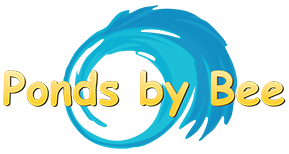
One of the many joys living the “pond life” afford you is watching your beautiful fish come to the surface of the water during feeding. It’s an activity everyone in the family can enjoy but it’s good to have a few tips when it comes to feeding your pond pets.
- Use high quality food
Just like all pet food, it’s not all created equal. Specific to your pond fish, studies have shown that food with fish proteins are best digested by your pond pets. When you consider that fish typically eat other fish when living in Oceans or lakes this make a lot of sense.
So when shopping for fish food you can check the label for the proper protein sources such as fish meal, blood meal, squid meal, shrimp meal, herring meal, or other aquaculture protein as the first ingredient. Aquascape premium fish food is a high-quality choice with top ingredients.
- Store your fish food properly
Fish food isn’t something you want to buy in large bulk and keep for an extended time. It’s best not to buy more than you need in a season. You can store fish food for an extended time in the fridge but never freeze it. Freezing fish food will compromise the fat-soluble vitamins in the food.
Just like your own food, if you notice a strange smell, develop mold/fuzz, changes colors, crumbles up, or sticks together its best to discard it. Feeding your fish bad food can potentially cause several problems with your fish. Much of what grows on bad fish food can be toxic and cause injury or deficiency in the fish that eat it.
- Establish a feeding schedule
Similar to most pets you will find more success feeding your fish if you follow a regular feeding schedule. Your fish will actually get used to seeing you and eating at the same time each day. This will be especially helpful if you want to get to a point where you can feed your fish from your hand. It takes time and patience but it’s a fun experience hand feeding your fish.
- The 5-minute rule
The 5-minute rule is a great way to make sure you do not overfeed your fish. It’s simple, basically you don’t feed your fish more than they can eat in 5 minutes. Everything they need they will be able to consume in that amount of time, even for your larger fish. If you do notice some of your larger fish eating from your aquatic plants, it’s fine to feed them slightly more. It’s important to keep in mind that any food that goes uneaten will decompose in the pond. It’s also good to remember the more you feed your fish the more waste they will produce. Too much fish waste can create an imbalance in your pond’s ecosystem.
- You don’t have to feed your fish
One thing to keep in mind is that you don’t actually need to feed your fish. Fish will eat algae, aquatic plant roots and beneficial bacteria off the gravel in your pond. You may be surprised to know that eating these actually provide health benefits to the immune system of your fish. We know many pond owners who have never fed their fish but remain very healthy. So even if you are going on vacation and nobody is around to feed your pond pets, they will not go hungry.
